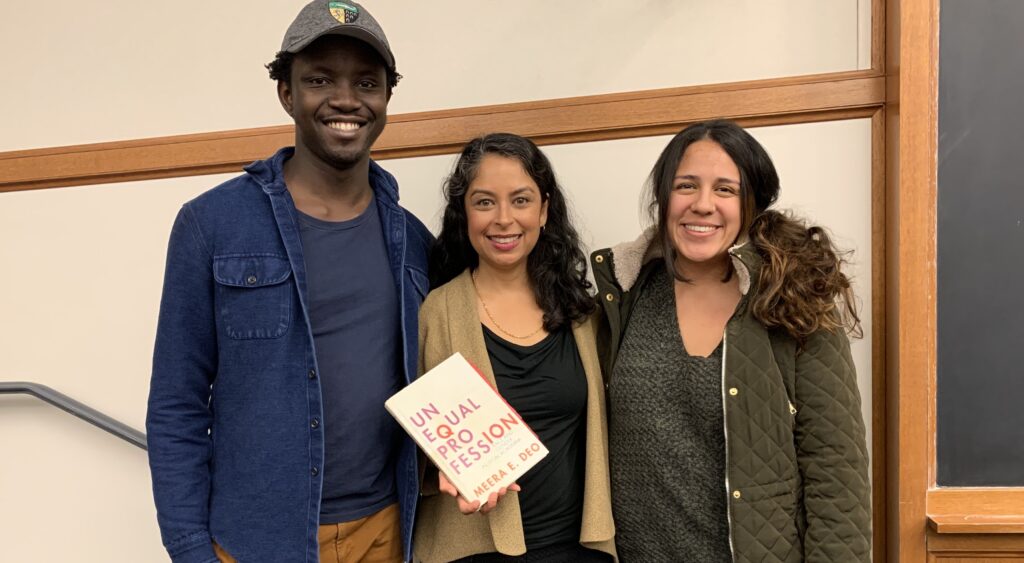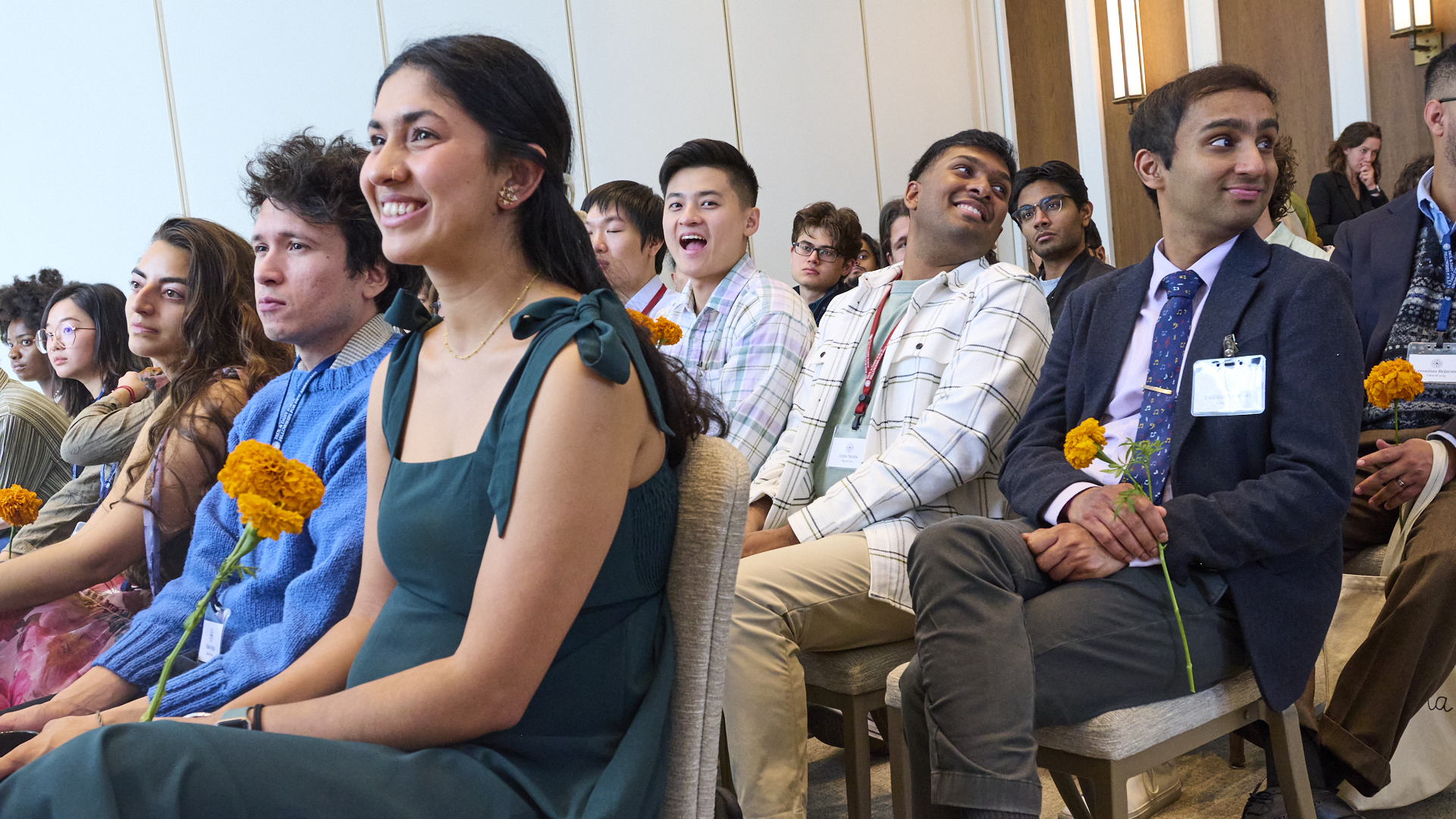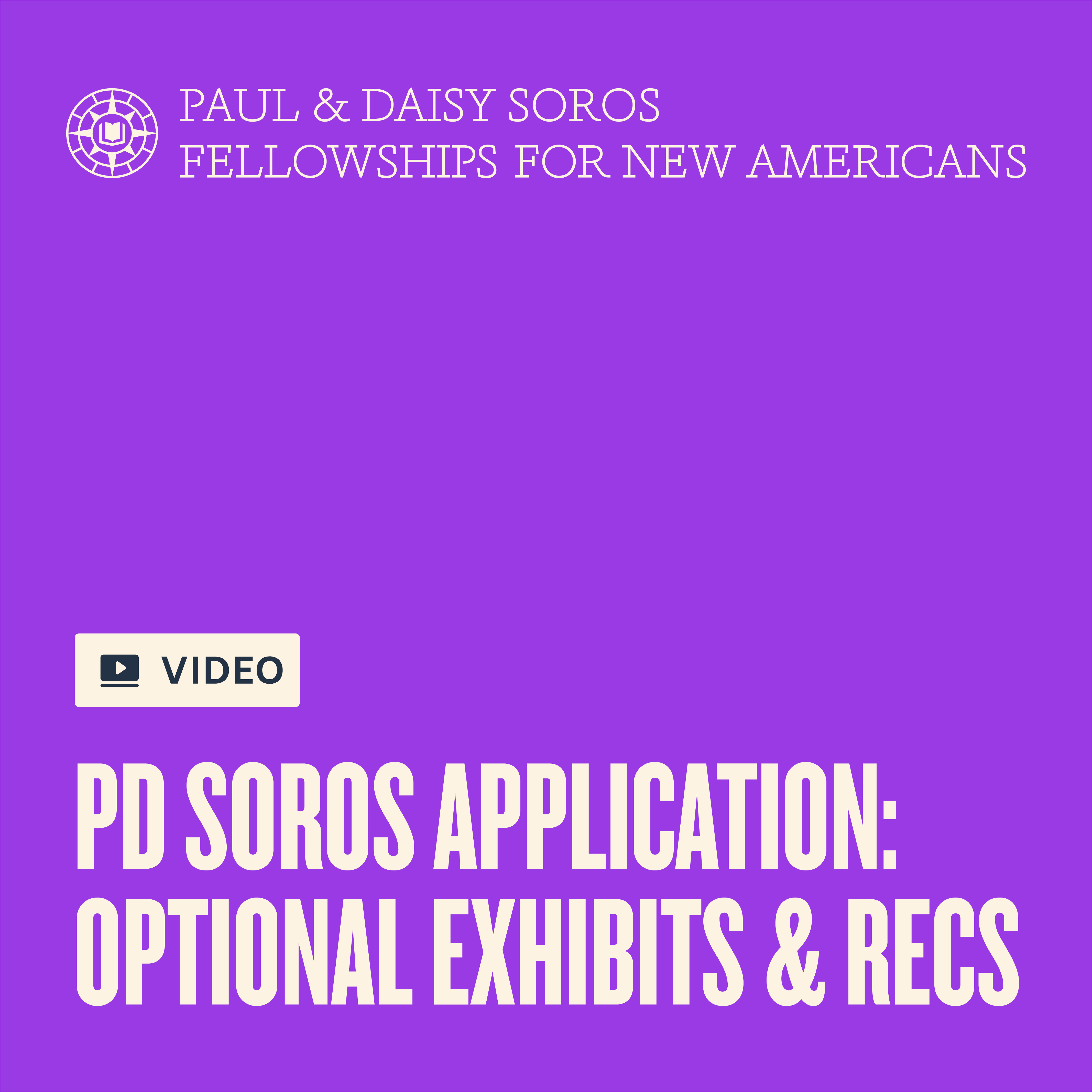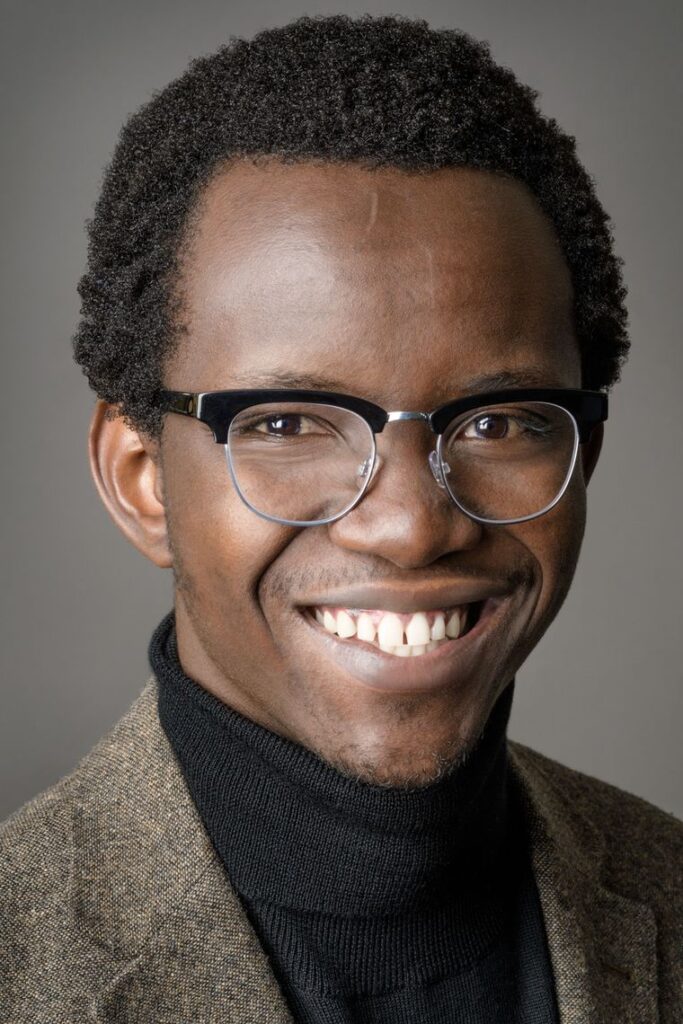- Fellow Highlights
Q&A: JD/PhD Student Joel Sati Looks Back At The Fellowship

Born in Nairobi, Kenya, 2018 Paul & Daisy Soros Fellow Joel Sati immigrated to the United States at the age of nine. Early on, Joel’s mother worked night and double shifts at a Kennesaw, Georgia gas station to make ends meet.
After receiving his associate’s degree, Joel continued his college education, activism, and research at the City College of New York (CCNY). While a student, Joel was a youth organizer for African Communities Together, where he mobilized African youth around immigration issues. He also codesigned and cotaught a black political thought course at CCNY that explored texts such as The Souls of Black Folk by W. E. B. Du Bois, Black Feminist Thought by Patricia Hill Collins, The Racial Contract by Charles Mills, Citizen by Claudia Rankine, Between the World and Me by Ta-Nehisi Coates, and The New Jim Crow by Michelle Alexander.
As a PhD student in the Jurisprudence and Social Policy program at UC Berkeley and a JD candidate at the Yale Law School, Joel’s work examines the intersections of law, epistemology, and philosophy as they relate to contemporary issues of noncitizenship and illegality. His work fleshes out a concept he titles “illegalization,” defined as the legal-institutional processes that continuously cast people as less-than-capable knowers in the law.
Why did you apply to The Paul & Daisy Soros Fellowships for New Americans?
I applied to the Fellowship for a lot of reasons. The first was that I have been focused on getting a JD/PhD. Finding opportunities for financial support wherever I can get it was paramount. So far, it has been a great help as I pursue my JD at Yale and PhD at Berkeley. Further, as a New American, having a community that was explicitly welcoming of someone in my situation was very motivating. I knew I had to apply.
Who has inspired you from the Paul & Daisy Soros Fellowship community?
My co-Fellows, first and foremost. Second, I have to give a shoutout to my mentor Dennis Tseng, a 2013 Paul & Daisy Soros Fellow. He has been an amazing person to spend time with and talk to, and his counsel has been crucial for me.
You’re now finishing up the second year of the Paul & Daisy Soros Fellowship program. Has the Fellowship been what you expected?
It has been orders of magnitude more than I expected!
As a New American, why has it been important to have The Paul & Daisy Soros Fellowships community?
In a country where I still feel fundamentally foreign, it is important to have a community like the Paul & Daisy Soros Fellowships where what would otherwise make you foreign is what makes you right at home. Also, having others who have had similar, harrowing journeys to where they are gives me a lot of motivation when things do get tough personally.
What has The Paul & Daisy Soros Fellowships program brought to your life?
First and foremost, ninety thousand dollars! On a more serious note, I’ll sound like a broken record harping about the wonderful community that I have been able to form. Even in the era of quarantine, my classmates still keep in touch via Zoom calls; having that is critical to combat the isolation.
Do you have any favorite memories from the past two years as a Paul & Daisy Soros Fellow?
The two Fall Conferences have been a highlight for me. I’ve built connections that will last a lifetime, and just had fun. I also really relished helping applicants with their applications; a few of them are now Fellows, and it makes me very proud! Also, meeting and hanging out with my mentor has been a wonderful memory.
What advice would you give to someone who is thinking of applying to The Paul & Daisy Soros Fellowships for New Americans?
The advice I give to anyone who asks is simple: keep applying as long as you are eligible. I got it on my third try, so persistence pays off! A related piece of advice is to reach out to current Fellows while understanding that they have limited time and ability to help. In my experience, all the Fellows I reached out to were very generous with their time and their advice. When I made it to the interview stage, for example, five Fellows took time out of their schedule to organize *multiple* mock interviews for me!
Where are you with your graduate program now? What’s next?
As of now I just finished my first year of law school at Yale. I’m also on a hiatus from my PhD program, though I still keep in touch with my committee regularly.
How do you plan to stay active with the Fellowship community in the years to come?
My M.O. is twofold: to maintain the rich connections I have built with my co-Fellows, and to pay it forward to those who want to join the Fellowship.
What does The Paul & Daisy Soros Fellowships for New Americans program mean to you?
Everything. The Paul & Daisy Soros Fellowships is a wonderful community of leaders, thinkers, and amazing people. And to be in the company of over two decades of generational individuals is something that blows my mind each time I think about it. This community also motivates me to give back to others, and I hope to do that in the future. ∎
Keep Exploring
-
 Read more: Q&A with MD/PhD Student Silvia Huerta Lopez
Read more: Q&A with MD/PhD Student Silvia Huerta LopezQ&A with MD/PhD Student Silvia Huerta Lopez
-
 Read more: PD Soros Eligibility Guide for PhD Applicants
Read more: PD Soros Eligibility Guide for PhD Applicants- Applicant Information
PD Soros Eligibility Guide for PhD Applicants
-
 Read more: Watch: Optional Exhibits & Recommendations
Read more: Watch: Optional Exhibits & Recommendations- 2025 Information Sessions
Watch: Optional Exhibits & Recommendations
-
 Read more: Watch: Essay Writing information session
Read more: Watch: Essay Writing information session- 2025 Information Sessions
Watch: Essay Writing information session
